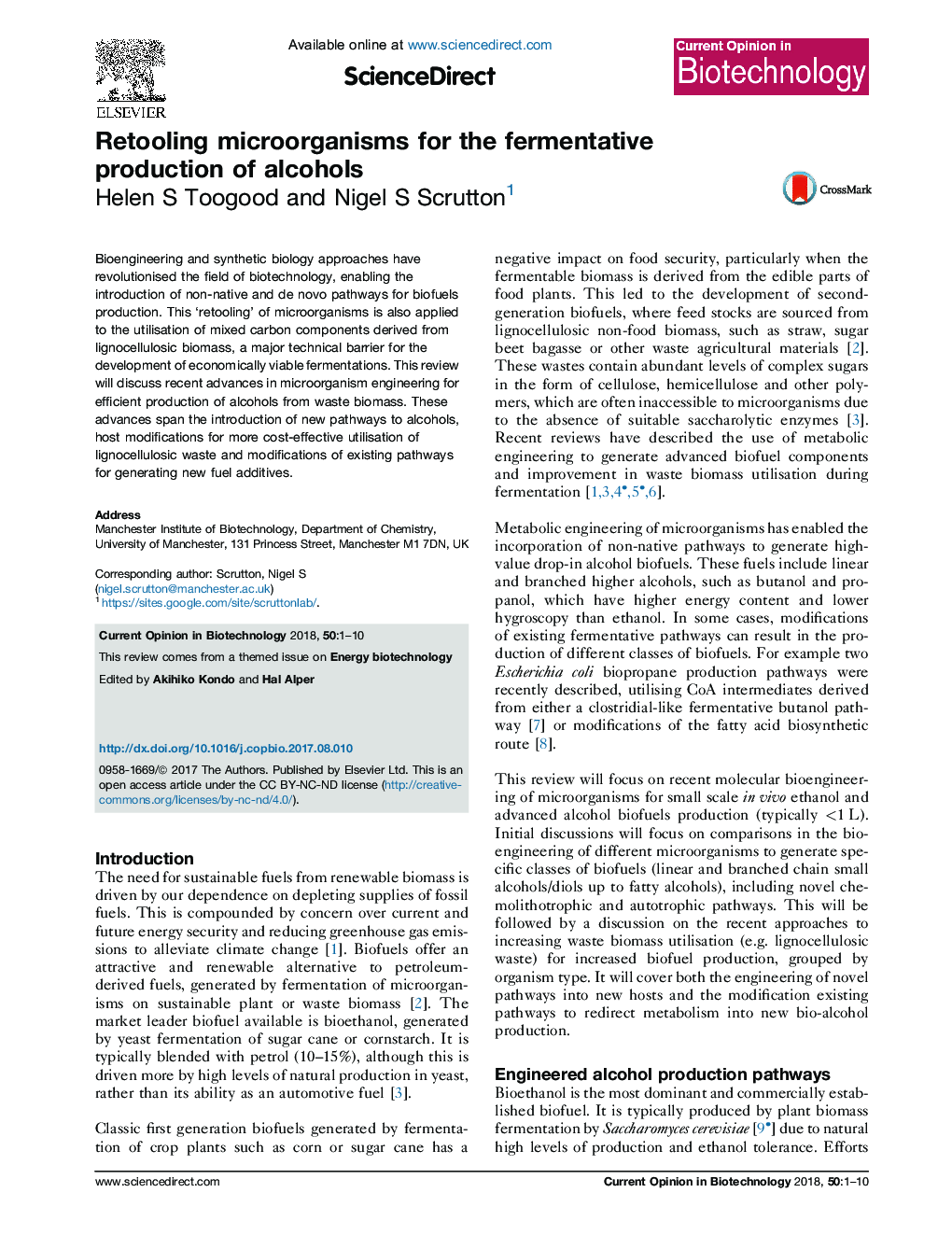| Article ID | Journal | Published Year | Pages | File Type |
|---|---|---|---|---|
| 6451406 | Current Opinion in Biotechnology | 2018 | 10 Pages |
â¢Synthetic biology engineering technology applied to introduce alcohol biofuel-producing pathways into microorganisms.â¢'Biofactories' fed on waste agricultural and oceanic plant material, generating sustainable and renewable biofuels.â¢Molecular engineering required to optimise host organisms to utilise difficult to access carbon sources, such as lignocellulosic waste and algal biomass.â¢Introduction of novel biofuel 'add-ins' by the generation of de novo pathways or introduction into new hosts.
Bioengineering and synthetic biology approaches have revolutionised the field of biotechnology, enabling the introduction of non-native and de novo pathways for biofuels production. This 'retooling' of microorganisms is also applied to the utilisation of mixed carbon components derived from lignocellulosic biomass, a major technical barrier for the development of economically viable fermentations. This review will discuss recent advances in microorganism engineering for efficient production of alcohols from waste biomass. These advances span the introduction of new pathways to alcohols, host modifications for more cost-effective utilisation of lignocellulosic waste and modifications of existing pathways for generating new fuel additives.
Graphical abstractDownload high-res image (209KB)Download full-size image
